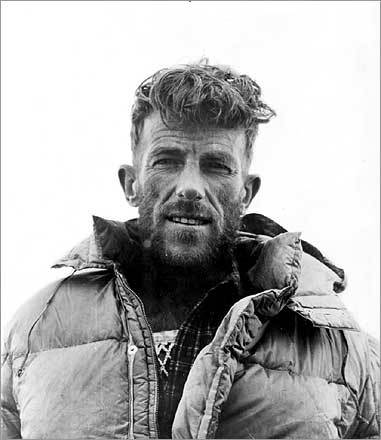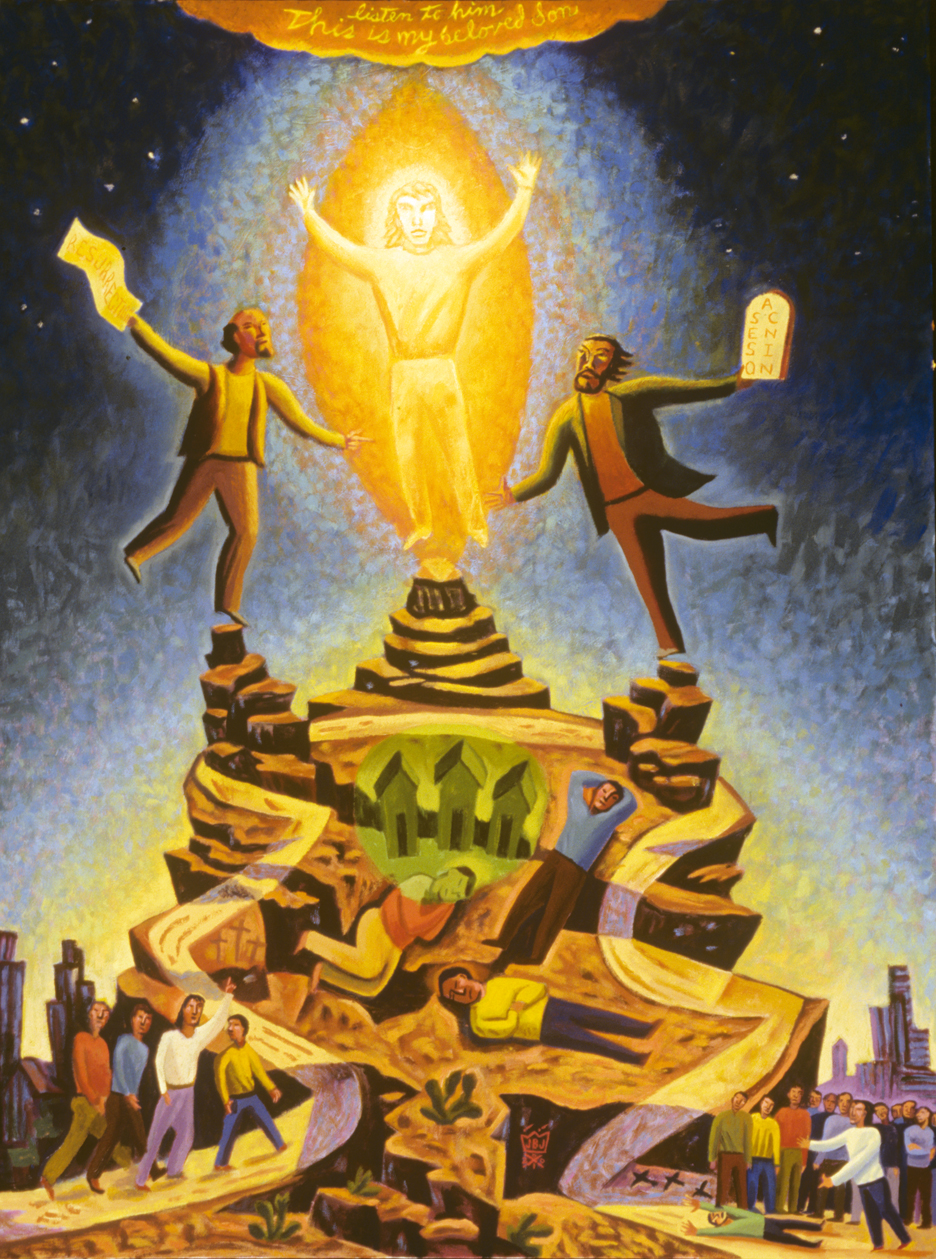Sunday before Lent: Exodus 24:12-18, 2 Peter 1:16-21 and Matthew 17:1-9
Sir Edmund Hilary was one of the most famous explorers and mountaineers - receiving a coronation medal for his ascent of Everest 70 years ago.
He was honest about some of the misery of high altitude climbing and the dangers that went with it. He spoke of being sensible, prepared as well as the compulsion and thrill . He saw adventure as something open to the ordinary, the mediocre and the fearful.

Perhaps the perspective of his experience says something about today’s readings. However challenging or modest the climb, you cannot stay at the summit forever. Mountaineers, hikers and walkers all have to descend; but as they do so, they bring with them what they have seen. Hilary said: ‘Human life is far more important than just getting to the top of a mountain’.
Today we are taken to the summit - to a place regarded as holy, where heaven touches earth. But we are also drawn into the reality of human life, touched by Jesus, before returning to the valley.
Six days before he was led up a mountain by Jesus along with James and John, Peter had declared that Jesus was the Messiah, the Son of the living God. Peter had also challenged and resisted when Jesus explained that he must suffer, die and be raised to life.
Now, echoing Moses' experience of waiting on a cloud covered mountain, the glory of God was revealed on the seventh day. Now, that inheritance of the law, given for instruction, is transformed in Christ. As Elijah too joins Moses, the legacy of the prophets, calling people back to ways of love, mercy and justice, is also transformed.
This is a moment of glory, of dazzling brightness, a radiant darkness: something spectacular, overwhelming; a moment infused with the grandeur of God.
No wonder Peter embraces this with eagerness - declaring that it is good to be there and longing to create dwelling places there. He kinda gets it - he is far more inspired by this experience of glory than Jesus' words of suffering and passion.
Before he even gets all the words out, he’s stopped in his tracks. Now is a time to listen.

Listen to the one who is beloved, the Lord who is the servant; listen to the beloved Son, the servant who is also Lord.
Listen. For God comes to us in Jesus in humility and vulnerability, in flesh of our flesh. God comes to us and shares our human experience - the joys, adventures and wonder; the isolation, pain and sorrows.
It is good to be here, for this is the glory which assures us that the home of God is among mortals; that there will be a time when tears will be wiped away, and death will be no more. It is a glory which points towards a creation renewed.
It is good to be here, but this is the glory of the one who both commands the waves and shares bread with the crowds, who sees the humanity of the widow and tax collector and restores the sick and overburdened.
It is good to be here on the mountain top: to contemplate and gaze on glory; to inhabit the wonder of a world transfigured. But we cannot stay. We cannot confine, secure or domesticate the wild and unpredictable spirit of God’s presence.
The disciples fell to the ground overcome by fear when they heard a voice telling them to listen to God’s beloved Son.
It is then that the beloved Son reaches out and touches them; he says, do not be afraid. Jesus knows that there is something more important than getting to the top of the mountain. He knows that that means descending to the valley where human life unfolds.
Jesus knows that Peter and the others will not only listen to him - his teaching, the stories, the debates - but they will also follow. They will walk this way of loving sacrifice, of costly generosity, of self-giving care.
He knows their fear - that suffering is harder than glory. And he places his hand on their shoulder. He allows the warmth and weight of that to be felt. He is with them - quieting their hearts and stilling their minds.
Listen. Do not be afraid. He leads them back to the rhythms and routines of everyday life. He invites them to live out the commands to love God and neighbour - given for our instruction. To do that may not be spectacular; but that is the way of life we’re called to, step by step.
Today we do not climb out to a literal summit; but we do have the opportunity to draw near to the source of life. To extend our hands - to touch, taste and see how gracious the Lord is. To be fed, blessed, loved; to be strengthened and changed, to find reassurance in our fear.
For here in our worship - in word and sacrament, music and fellowship - we glimpse a holy light. We might hear a reassuring word - human and divine; we might receive a hand on the shoulder, the courage to have no fear.
We stand beyond the moment when the disciples had to keep their silence about their vision. They were given a glimpse of glorious majesty before he suffered on the cross. But Christ has been raised from the dead. It is good to be here. To be attentive to the glory - to be attentive to this ‘as to a lamp in dark places until the day dawns and the morning start arises in our hearts’, as Peter puts it.
It is a light which confirms a prophetic message; which opens us up to the breath and movement of the Spirit in us. A Spirit which nurtures acts of faithful listening in goodness and self-control, in kindness and patience, in generosity and mutual affection.
Such ways of living and loving are kindled as we come to the Eucharist, our summit and source, in cross-light. But human life is more than getting to the top of the mountain, we go out into the world and see God’s light reflected in a band of colour. We out to bring a touch of love which dispels fear; a word of comfort that restores hope.
© Julie Gittoes 2023